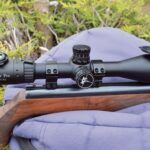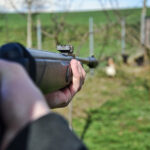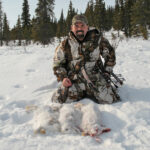Hunting is a thrilling outdoor activity enjoyed by many enthusiasts. Whether you’re a seasoned hunter or a novice, prioritizing your safety is essential when venturing into the wilderness. By taking certain precautions, you can ensure a safe and enjoyable hunting experience. In this guide, we will explore crucial points to keep yourself protected while hunting.
Table of Contents
Proper Planning and Preparation
Before heading out for a hunting expedition, thorough planning and preparation are key. Start by familiarizing yourself with local hunting regulations and obtaining the necessary permits. Research the specific rules and regulations for the area you plan to hunt in, as they may vary depending on the location and the type of game you intend to pursue. Study maps of the hunting area to understand its topography, potential hazards, and legal boundaries.
It is also important to inform someone reliable about your trip, including your expected return time and the location where you will be hunting. Provide them with relevant contact information and instructions on what to do in case they don’t hear from you within a reasonable timeframe. Additionally, carry a means of communication like a mobile phone or a two-way radio to stay in touch with others if needed.
Dress Appropriately
Choosing the right attire is vital for both comfort and safety during a hunting trip. Opt for clothing that provides effective camouflage and blends well with the natural environment in which you will be hunting. Consider the predominant colors and patterns of the landscape during the season you plan to hunt. This will help you remain undetected by your game.
Ensure your attire includes bright-colored elements, such as an orange hat or vest, to enhance visibility to other hunters in the vicinity. This is particularly important to avoid any mistaken identity accidents.
Additionally, for those seeking an extra layer of protection, considering the use of a bulletproof vest can be a worthwhile option. While not commonly utilized in standard hunting scenarios, bulletproof vests can provide an added level of safety in specific situations where there may be a higher risk of accidental discharge or when hunting in areas where firearms are more prevalent. You can get more information from https://bulletproofsupplystore.com/, but generally, bulletproof vests are designed to absorb and distribute the impact of bullets, reducing the risk of serious injury. Consult local laws and regulations regarding the use of bulletproof vests during hunting activities and consider professional advice to choose a vest that suits your specific needs.
Handling Firearms Responsibly
Firearm safety is of utmost importance when hunting. Always treat firearms as if they are loaded, even when you are certain they are not. Familiarize yourself with the specific features and operation of your firearm, whether it’s a rifle, shotgun, or bow, and ensure it is in proper working condition before every hunting trip. Regularly inspect your weapon to check for any signs of wear or malfunction.
When transporting firearms, always follow local laws and regulations. Ensure they are unloaded, securely stored, and properly cased or holstered. When handling firearms during the hunt, maintain the barrel pointed in a safe direction, away from yourself and others. Never place your finger on the trigger until you are ready to shoot. Remember, proper firearm safety practices are critical to preventing accidents and ensuring the well-being of everyone involved.
Be Aware of Your Surroundings
Maintaining awareness of your surroundings is crucial for your safety while hunting. Regularly scan the area for other hunters, as their presence may not always be immediately apparent. Communication is key in such situations, so consider using a whistle or other agreed-upon signals to alert nearby hunters of your presence.
Before taking a shot, always positively identify your target and what lies beyond it. It is essential to have a clear line of sight to your target without any obstructions that could cause a bullet or arrow to deviate from its intended path.
Avoid wearing headphones or engaging in activities that may distract you from your environment. Be cautious of potential obstacles like fallen trees, uneven terrain, or wildlife that may pose a threat. By remaining vigilant and alert, you can reduce the risk of accidents and ensure the safety of yourself and others.
First Aid and Emergency Preparedness
No matter how careful you are, accidents can still happen. Therefore, it is crucial to carry a well-equipped first aid kit and have a basic understanding of first aid techniques. Your first aid kit should include items such as bandages, adhesive tape, antiseptic wipes, tweezers, and any necessary prescription medications. It’s also a good idea to carry a compact manual that provides instructions on basic first aid procedures.
Learn how to treat common hunting injuries like cuts, sprains, or burns. Understand the signs and symptoms of more serious conditions, such as hypothermia or heat exhaustion, and know how to respond accordingly. Additionally, include essential items like a flashlight, whistle, and compass in your survival kit. These tools can be invaluable in emergencies or when unexpected situations arise.
Familiarize yourself with basic survival skills such as building a shelter, starting a fire, and finding sources of potable water. While these skills may not be necessary for most hunting trips, knowing them can provide added confidence and security. Stay up-to-date with weather forecasts and be prepared for sudden changes in weather conditions.
Hunting is an exhilarating outdoor activity that allows us to connect with nature and challenge our skills. However, ensuring our safety should always be the top priority. By following the points outlined in this guide – proper planning, appropriate attire, responsible firearm handling, situational awareness, maintaining hydration and nourishment, and being prepared for emergencies – you can significantly minimize the risks associated with hunting.



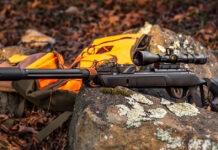
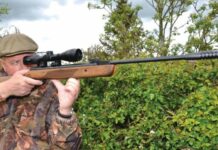
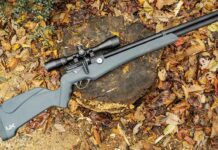
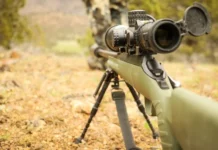
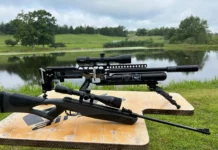
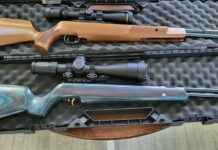
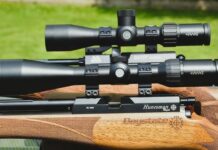
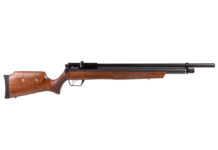
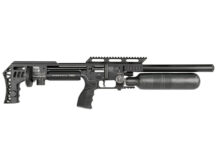
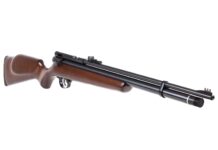
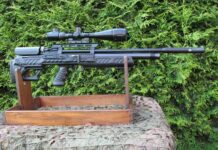
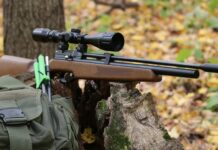
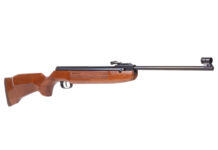
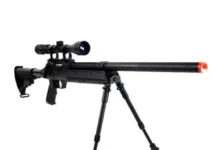
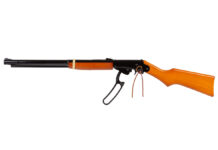

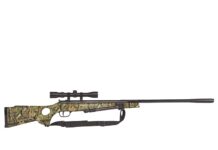
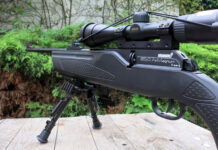
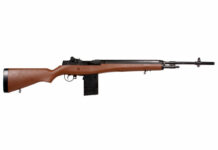
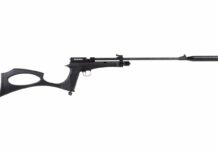
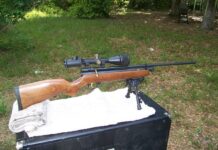
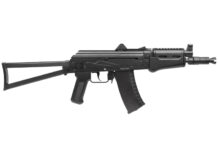

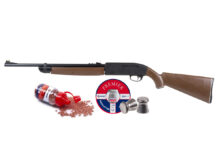


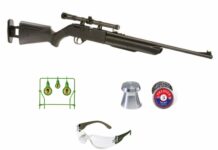
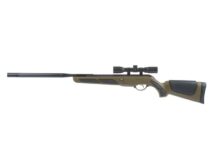
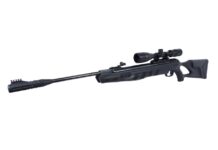
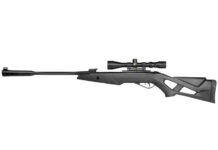
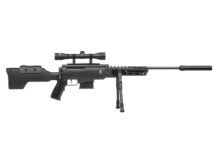
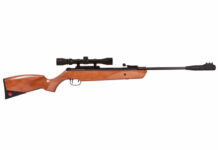




![Air gun 101: The differences between .177 & .22 – Which jobs they do best ? [Infographic]](https://airgunmaniac.com/wp-content/uploads/2024/11/1773-150x150.jpeg)
